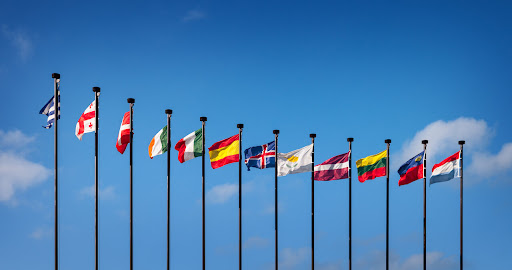Obtaining citizenship in a foreign country is a significant decision that carries various benefits and responsibilities. In recent years, an increasingly popular method to acquire citizenship is through a process known as citizenship by investment (CBI). This approach allows individuals to make a financial contribution to a country in exchange for citizenship rights and privileges. In this article, we will delve into what CBI entails and the costs involved with this method of obtaining dual citizenship.
Understanding Citizenship by Investment Programs
Obtaining citizenship through investment can provide a foreign national with many benefits, including increased travel opportunities, possibility to better structure personal income taxes, foreign investment options, and citizenship for an array of family members and future generations.
Nonetheless, it’s important to be aware of all potential costs involved. From processing and due diligence fees to the submission of application forms, understanding these expenses will help you make an informed decision about whether or not a particular citizenship by investment program is right for you.
How does citizenship by investment work?
Investment Amount and Financial Commitment
The amount you invest and your financial commitment play a crucial role in obtaining citizenship through investment. To become an eligible applicant for citizenship by investment, you must meet the minimum investment requirement set by the country offering the program. It’s important to thoroughly research each country’s specific requirements and associated costs before making a decision. By doing so, you can make an informed choice that aligns with both your financial capabilities and long-term goals.
The most common methods of CBI are:
- Government donation: One of the most popular options is to make a non-refundable contribution to a government fund. This direct investment in the country allows fee-paying applicants to contribute to the development of their new country while being able to enjoy all of the benefits of dual citizenship.
- Real estate investment option: Another popular option to obtain a passport by investment is by acquiring government-pre-approved real estate. This can take the form of residential properties as well as hotels, resorts, and other local commercial enterprise spaces. Successful applicants may choose to keep the actual property or to maximize their return on investment by selling or renting it with appreciation provided this is permitted under the particular citizenship by investment program.
- Investing in a government-approved business: It is possible to acquire citizenship by investment by making economic contributions to a local commercial enterprise. In addition to giving successful applicants a foothold in the local economy, this allows for a positive cash flow and for new jobs to be created.
Application Fees and Administrative Expenses
Applying for citizenship through investment comes with inevitable expenses, such as administrative fees and other associated costs. These fees are necessary to cover the diligence process and the application process itself.
The administrative expenses involved in the application process cover various aspects of obtaining citizenship documents, including passport issuance fees and stamp duties. These costs can vary depending on the economic citizenship program you choose and the specific requirements of the country offering citizenship by investment.
To navigate through these processes smoothly, it’s recommended to work with an authorized agent who specializes in citizenship by investment schemes. They can guide you through each step of the application process, ensuring all necessary documents are submitted correctly and on time. While these services may come at an additional cost, they provide valuable assistance in expediting your application and increasing your chances of success.
Due Diligence Fees and Background Checks
Citizenship programs often require foreign investors to pay due diligence fees and background checks as part of their application process. The fees vary depending on the country offering economic citizenship, but they typically cover the costs associated with conducting comprehensive investigations. The purpose of these checks is to ensure that applicants meet all necessary requirements and do not pose any security risks.
Due diligence fees are charges levied by the government or authorized agencies to conduct a thorough investigation into an applicant’s background, including their financial history, source of funds, and personal character. Background checks aim to verify the legitimacy of foreign investors seeking citizenship through investment.
During the due diligence process, extensive research is conducted to uncover any possible criminal record or fraudulent activities linked to an applicant. This helps maintain the integrity of citizenship programs and protects countries from potential risks associated with granting economic citizenship without proper vetting.
Processing Fees and Timelines
Processing fees cover the administrative expenses involved in reviewing and processing your application. These play a significant role in funding government operations related to economic citizenship applications. Make sure to understand all relevant information regarding these aspects before making any decisions regarding economic citizenship through investments.
Each country has its own set of procedures and regulations that determine how long and expensive it will be to obtain citizenship through investment. Some countries have streamlined processes that allow for quicker approvals, while others may have longer waiting periods due to stricter background checks or other requirements. Likewise, the processing fees can range from a few thousand dollars to tens of thousands of dollars. It’s important to note that these fees are separate from the investment amount required for economic citizenship.
Passport Fees and Documentation Requirements
When applying for citizenship by investment, you’ll need to provide proof of identity, such as a valid passport or national identification card. You may also be required to submit documents showing your financial stability and source of funds for the investment. This could include bank statements, tax returns, police certificates, or business ownership documents. Likewise, you’ll need to pay passport fees in addition to the initial investment amount.
It’s essential to carefully review the specific document requirements of the country you’re considering for economic citizenship. Failure to provide accurate and complete documentation can result in delays or even rejection of your application. Therefore, it’s advisable to seek professional guidance throughout the process to ensure that you meet all the necessary requirements within the context of your chosen investment program.
Why get citizenship by investment in Dominica?
Hidden Costs and Unexpected Expenses
It’s crucial for investors to thoroughly research all aspects of their chosen program and take into account not only the initial fees but also any additional costs that may arise throughout their journey toward economic citizenship. By being well-informed about these potential expenses, individuals can make more accurate financial plans and ensure a smoother path toward achieving their desired citizenship status.
These extra expenses can vary depending on the country and program chosen for citizenship by investment. You may encounter the following:
- Hidden application processing fees: These are typically non-refundable fees that cover certain administrative costs associated with reviewing and processing your application. It’s important to research and understand application fees beforehand so you can budget accordingly.
- Requirement for a physical presence in the country: Some programs require applicants to spend a certain amount of time in the country before they can be granted citizenship. This means additional expenses for travel, accommodation, and daily living while fulfilling this requirement.
- Potential visa-related costs: These may arise during or after obtaining citizenship by investment. Depending on your destination country, you may need to pay for an immigrant visa or visa waivers for yourself and your family members. Additionally, there might be ongoing fees associated with maintaining your immigration status, such as renewing visas or complying with specific terms of your visa.
Comparing Costs Across Different Programs
Each program comes with its own set of costs and fees that you need to consider before making a decision. Before making a decision, it’s essential to consider several factors such as residency requirements, taxes, additional family fees, and real estate investments.
One important aspect to look at is the residency requirement. Some programs require you to spend a certain amount of time in the country before granting you citizenship, which means additional costs for travel and accommodation.
Additionally, if you are planning to include your family in the application, there may be extra costs involved. Some programs charge additional fees for each family member included in the application, while others have a flat fee regardless of family size.
Which countries offer citizenship by investment programs?
Making an Informed Decision
Before diving into the world of economic citizenship programs, there are certain important factors to consider:
- When considering the costs and fees involved in the process of citizenship by investment, it’s important to take into account various factors such as visas, family considerations, and the multiple fees from countries offering these programs.
- Consider your family composition, especially dependent children included in the program. Some countries may allow for a certain number of additional family members to be included in the application without any additional fees, while others may charge an extra fee per dependent.
- It’s also important to think about potential costs such as travel expenses for visiting the country during the application process or even after obtaining citizenship. While some programs may require minimal travel, others may have more stringent requirements, which could increase your overall expenses.
- Another factor worth considering is whether dual citizenship is allowed under the economic citizenship program you’re interested in. Dual citizenship can offer numerous benefits such as visa-free travel to multiple countries and increased mobility options for you and your family. However, acquiring dual citizenship may also come with its own set of costs and obligations that need to be taken into account.
Apply for Citizenship By Investment
While the concept of citizenship by investment may seem straightforward, it is essential to understand that it involves much more than just a financial transaction. Unexpected expenses can often catch investors off guard, as there are several additional costs that need to be considered throughout the entire process.
The best way to prepare yourself to apply for citizenship by investment is by enlisting the help of a qualified attorney. At JH Marlin, we specialize in providing the best advice to individuals interested in pursuing citizenship through investment programs. From helping you decide which country best suits your particular circumstances to contacting the relevant authorities and providing the correct documentation, we’ll be by your side every step of the way to facilitate a successful citizenship application.


















